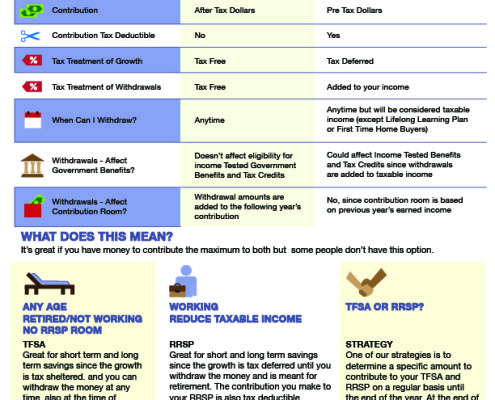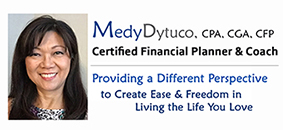Having a financial plan provides a road map to your financial well-being.
Having your plan periodically reviewed & updated ensures it stays current to meet your evolving needs and is aligned with life’s changes.
Video created by Jaime Munro from Whisper Media (www.whispermedia.ca)
Needs vary as we go through different life stages. For example, needs and priorities may include:
Starters (age 21 to 34 – finishing school or starting on career path):
- to pay off student & other debts, establish an emergency fund, or to save for a major purchase such as a first home.
Builders (age 35 to 44 – may have kids and own a home):
- to provide for dependents, repay mortgage and debts, save for children’s education, ensure families are financially provided for in event of death or disability.
Accumulators (age 45 to 54 – may be progressing in their career and/or have grown young adult children):
- to save for all stages of retirement, reduce current & future income tax, to avoid creating a burden to family in case of major illness.
Accelerators (age 55 to 64 – may be preparing for retirement):
- to re-align and ramp up retirement savings if required, reduce taxes & expenses as you move closer to retirement, ensure adequate provision for living and health care expenses of surviving spouse in the event of death of one spouse.
Preservers (age 65+ may be retired and still active):
- to live comfortably in retirement, minimize tax in transferring assets to the next generation, provide for final expenses and taxes, and simplify estate settlement for the family.
Our Process
Determining your goals and expectations
Clarifying your present situation and identifying any shortfalls, issues or opportunities
Reviewing & selecting options to cover your needs
Implementation
Monitoring your plan and making adjustments if necessary
Financial Planning Articles of Interest

Estate Planning for Real Estate Investors
For many Canadians the majority of their wealth is held in personally owned real estate. For most this will be limited to their principal residence, however, investment in recreational and real estate investment property also forms a substantial part of some estates. Due to the nature of real estate, it is important to utilize estate planning to realize optimum gain and minimize tax implications.

Leave a Financial Legacy for your family and less taxes for the government
If your plans involve doing well financially and leaving an inheritance for future generations, look at using life insurance to transfer wealth tax-free. This would seem preferable to leaving a big chunk of your hard earned money for the government. It also protects your money from probate and claims or "challenges" made to your Will.

How to pay less taxes when you withdraw from your RRSP or RRIF (at retirement)
It‘s been said that one of the best tax-savings tools is also one of least known, least understood, and most under-utilized financial instruments (yes, that’s the Annuity).

How to select Mortgage Insurance that gives you more benefits
See how getting your own coverage gives you & your family more benefits compared to getting Mortgage Insurance from your lender.

4 Simple Steps that Can Help You Catch Up & Grow Your Retirement Savings
Do you wonder if you can ever retire or you'll be like the many older Canadians who are still dealing with high levels of debt? Here are some simple steps that you can take now to help you grow your retirement savings.

Six “Other Ways” to increase your income (or making extra money without needing to work excessive overtime)
When you talk about saving money for your retirement, for a special vacation or for your rainy day fund, most people automatically think of ways to reduce spending. There are however, 2 ways to balance a budget - reduce spending or increase earnings.
For most people, talk of earning extra money means working overtime or getting another job. That can sometimes cost you more if you overextend yourself and get sick or too stressed out. This article talks about some other ways to increase your income (or cash) that may not-be-so-obvious or may not be top of mind.

1 in 3 Canadians will become disabled before the age of 65
Having a source to replace your earned income in the event of an illness or accident is vital considering that on average, 1 in 3 Canadians will become disabled for a period of more than 90 days at least once before the age of 65. Having that source be tax-efficient and one that doesn't drain your retirement fund, is also critical to ensure you stay on track and not have to start from scratch when you recover.

A few seconds that can change your life
A few seconds could change your life - in a good way, or a bad way. My close call could have led to a much worse situation that could have severely affected my quality of life. So while we could all go through unfortunate situations that we can’t avoid, planning for the unexpected can help reduce the adverse impact on our quality of life.

5 KEY STEPS TO REACHING YOUR FINANCIAL GOALS THIS YEAR & BEYOND
Albert Einstein defines insanity as doing something over & over again and expecting different results. What have you been doing over & over the last few years that has not moved you closer to your financial goals? Why even bother with new years’ resolutions if you’ve usually just abandoned them after a few weeks? These 5 key steps gives a different perspective that can truly make a big difference to reaching your financial goals this year and beyond.

10 often overlooked places to look for savings
When you search the internet for articles on the saving money, most usually say the same old obvious suggestions like turning lights off, turning the thermostat down and bringing your lunch to work.
This article highlights some not-so-common places to look for savings - in some very common ways we “waste” money. As you read through the list, think about how much these may have cost you in the past, or imagine how much they could cost you in the future. As you add it all up, you may find that you have a hidden pot of gold right under your fingertips.

TFSA or RRSP?
RRSP or TFSA

Taxation Changes for Life Insurance Create Tax-Savings Opportunities in 2016
Permanent life insurance, such as Whole Life or Universal Life, has long been accepted as a tax efficient way of accumulating cash for future needs. Soon the amount of funds that can be tax sheltered within a life insurance policy will be reduced by new tax rules which take effect January 1, 2017. These changes may make 2016 the best year to buy cash value life insurance.
Interesting links
Here are some interesting links for you! Enjoy your stay :)Pages
Categories
- 2020
- 2020 Only
- 2021
- 2022
- Accountants
- Articles
- Blog
- Budget
- Business Owners
- Children
- Coronavirus
- Coronavirus – Associates
- Coronavirus – Practice Owners
- Coronavirus – Retired
- Coronavirus – Retiring
- Coronavirus – Students
- corporate
- Critical Illness Insurance
- Debt
- disability
- Disability Insurance
- Employees
- Estate Planning
- Families
- Family
- financial advice
- Financial Planning
- health benefits
- incorporated professionals
- Individuals
- Investment
- Key person
- Life Insurance
- mortgage
- Mortgage Insurance
- News
- personal finances
- Professional Corporations
- Professionals
- RDSP
- retirees
- Retirement
- Retirement Planning
- Risk Management
- RRSP
- Savings
- Tax
- Tax Free Savings Account
- Tax Savings
- Term Insurance
- Videos
- Wealth Protection
- Women
- Workshops
Archive
- January 2022
- April 2021
- February 2021
- December 2020
- November 2020
- October 2020
- September 2020
- August 2020
- July 2020
- June 2020
- May 2020
- April 2020
- March 2020
- February 2020
- January 2020
- March 2018
- February 2018
- January 2018
- October 2017
- September 2017
- August 2017
- July 2017
- June 2017
- May 2017
- April 2017
- March 2017
- February 2017
- January 2017
- December 2016
- November 2016
- October 2016
- September 2016
- August 2016
- July 2016
- June 2016
- May 2016
- April 2016
- March 2016
- February 2016
- January 2016
- December 2015
- November 2015
- October 2015
- September 2015
- August 2015

